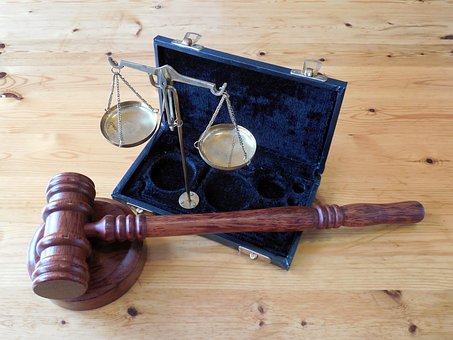
4 Types of Lawyers You May Need in Ohio
March 5, 2023
Important Things You Should Know if You Are Facing Deportation
March 5, 2023You might hear the term “negligence” sometimes. You may use it casually in conversation, but in a courtroom setting, it means something specific. If you’re bringing a lawsuit against a person or entity, it means something precise that you must establish to win money in damages.
We’ll discuss negligence in greater detail now. You’ll learn about several forms of negligence that can lead to personal injury claims, and we’ll review how the court system regards each one.
Negligence-Based Personal Injury Claims
With personal injury claims, you’ll likely hear your lawyer mention negligence a lot. They must establish the defendant’s negligent actions toward you if you want both money and justice.
Four elements make up negligence in this setting. The duty of care comes into play first. It means a precedent that exists that the person or entity met or didn’t meet. If the jury believes that a duty of care existed and the defendant didn’t meet it, you’re moving toward a possible judgment in your favor.
Next comes breach of duty. Did the person or entity breach their duty, as the law understands it? After that comes causation. Your lawyer can establish causation if they show that this person or entity breached their duty and caused your damages, and they did so in a way where they should have foreseen the harmful outcome.
Finally, damages come. You must prove why you should get the monetary amount you’re demanding. The damages you’re requesting should include costs like medical bills, but they will also include your pain and suffering.
Determining your pain and suffering’s worth becomes difficult, as you might imagine. The jury must consider precedent in these situations.
Now, let’s consider different negligence categories you might pursue in a courtroom setting.
Negligence Per Se
Negligence per se means you feel, as the injured party, that the defendant harmed you. However, there’s no clear precedent to which you can point.
You can give two different juries the same facts, and one might feel the defendant acted negligently, while the other would not. In these situations, you might win some damages, or you might walk away without a dime.
Professional Negligence
You only encounter professional negligence in certain fields or lawsuits. Professional negligence comes into play with medical malpractice cases more than any others.
That’s because, presumably, a doctor owes you a standard of care that the medical profession puts in place. If a doctor botches a simple procedure, they have likely not met the care standard, and you can sue them accordingly.
This is why most doctors maintain expensive medical malpractice insurance. They know that if they make a mistake, they can pay for lawsuits with their policy.
Gross Negligence
Gross negligence cases usually let you demand more money. You feel a person or entity harmed you, but they did so egregiously. They didn’t just make a mistake that caused an injury. They acted with such carelessness or recklessness that any normal person would have never done such a thing.
If someone drives when they’re blackout drunk, rather than slightly over the legal limit, and they mow you down in a crosswalk, that’s gross negligence. If someone pushes you into the ocean when you just said you can’t swim, that also applies.
Gross negligence comes up in civil cases. Someone who harmed you through gross negligence might owe you money if a jury agrees with you, but they may also face criminal charges. Depraved indifference and gross negligence often go hand in hand.
Ordinary Negligence
Ordinary negligence cases happen the most frequently. You might sue someone for ordinary negligence if they did something wrong through carelessness, but it was not horrifying or egregiously wrong.
Maybe they hit your car from behind if they ran a stop sign because they didn’t see it. Perhaps they didn’t repair their front steps, and you fell and broke your ankle.
Defendants often settle ordinary negligence cases out of court. That might happen if their lawyer says you have a good case against them. Their attorney might suggest settling so the defendant can avoid paying more if the jury decides against them.
The money you might get varies depending on which negligence form you allege happened. In any negligence case, you must prove your claim.
That means gathering evidence and showing the jury events occurred like you said. Your lawyer might gather and show photos and video evidence, or they might have someone testify on your behalf.





